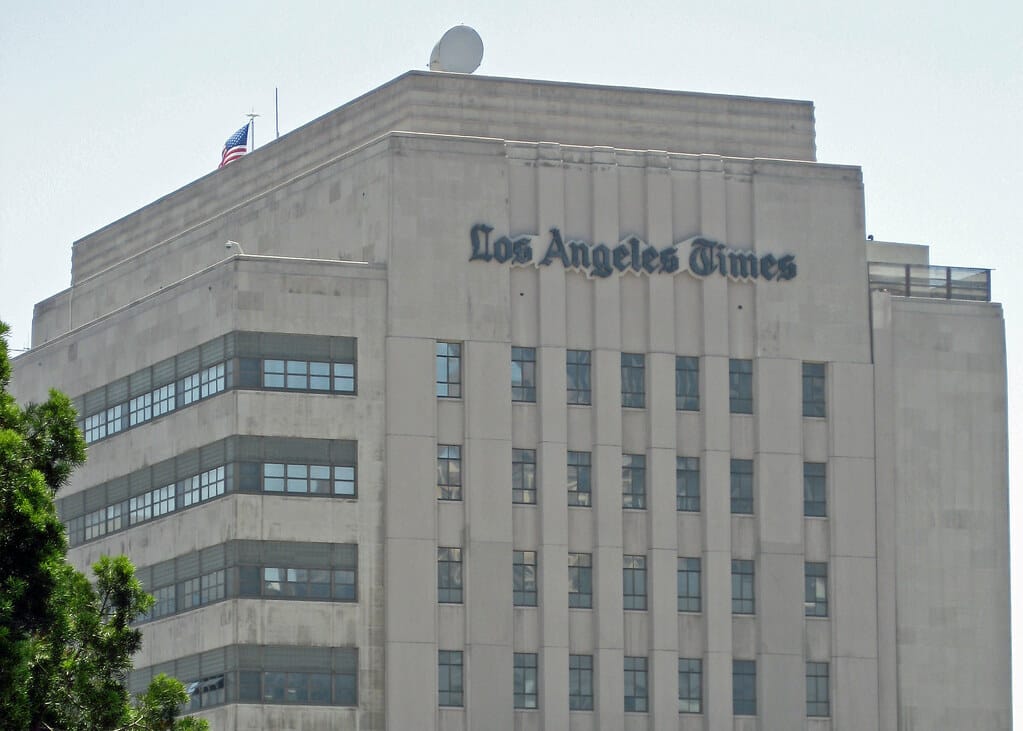In an era where trust in the media is at an all-time low, a growing number of readers are turning to independent newsrooms for coverage they believe in. Legacy outlets like The Washington Post and The Los Angeles Times—once bastions of editorial independence—are now grappling with the influence of billionaire owners who aren’t afraid to interfere with coverage. Meanwhile, smaller, mission-driven publications are stepping up, offering something mainstream media can’t: an unfiltered, unapologetic voice.
Let’s be honest—when a billionaire owns a newspaper, that paper is only as independent as the owner allows it to be. We’ve seen this play out in real time at The Washington Post under Jeff Bezos and The Los Angeles Times under Patrick Soon-Shiong. Newsrooms that should be holding the powerful accountable are instead being held hostage by executives who have their own interests to protect.
At the Post, leadership shake-ups and editorial meddling have sent waves of uncertainty through the newsroom. Reporters never know when a hard-hitting investigation might get softened or buried altogether. Over at the Times, Soon-Shiong’s hands-on approach has led to high-profile resignations and a newsroom that feels more like a corporate fiefdom than a free press. This isn’t just frustrating—it’s dangerous. A press that answers to its owners rather than the public loses its ability to challenge authority, expose wrongdoing, and, ultimately, do its job.
Traditional media still clings to the idea that objectivity means never taking a side, even when one side is blatantly lying. That’s how you end up with climate change deniers getting equal footing with scientists, or authoritarianism being framed as just another valid perspective in a political debate. This kind of false balance doesn’t make journalism stronger—it makes it weaker, confusing readers and muddying the truth.
People are tired of sanitized, corporate-friendly coverage that refuses to call out problems for what they are. They want sharp, clear-eyed analysis rooted in facts but unafraid to take a stand. Opinionated journalism isn’t about spinning stories to fit an agenda—it’s about acknowledging reality and providing context that mainstream media often waters down in the name of neutrality.
Emerging outlets understand that trust isn’t built by pretending to be above the fray—it’s built by being honest about who you are and what you stand for. They’re not beholden to shareholders or billionaires with fragile egos. They don’t have to pull punches or avoid stepping on the wrong toes. And that makes all the difference.
Think about it: if a news outlet can’t publish a critical piece about its own owner, how can you trust them to tell the truth about anything else? The future of journalism doesn’t belong to ad-driven behemoths chasing clicks and appeasing investors. It belongs to independent, reader-supported platforms that can hold power accountable without fear of retribution. With the incoming administration, this will be more important than ever.
As mainstream media continues to lose its grip, the rise of independent journalism isn’t just a trend—it’s a necessity. In an age of media consolidation, newsroom layoffs, and billionaire interference, small, fearless publications might just be the last ones standing between the public and a completely broken news ecosystem.
